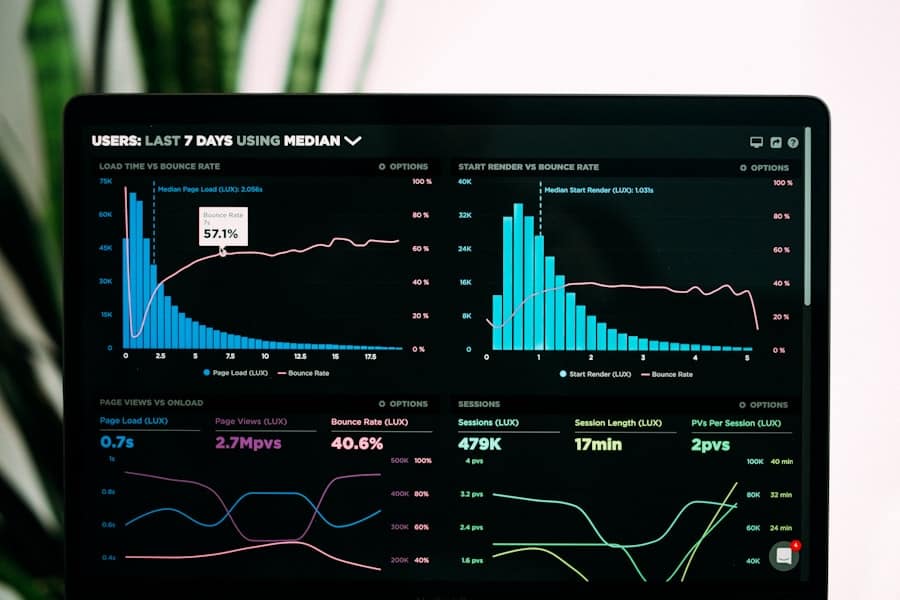Smart Supply Chain Management (SSCM) represents a transformative approach to the traditional supply chain model, leveraging advanced technologies to enhance efficiency, responsiveness, and adaptability. In an era characterized by rapid globalization and increasing consumer expectations, businesses are compelled to rethink their supply chain strategies. The integration of digital technologies into supply chain processes not only streamlines operations but also fosters a more agile and resilient framework capable of responding to market fluctuations and disruptions.
This evolution is driven by the need for real-time data visibility, improved collaboration among stakeholders, and the ability to make informed decisions swiftly. The concept of smart supply chains encompasses a variety of technologies, including the Internet of Things (IoT), artificial intelligence (AI), machine learning (ML), and big data analytics. These technologies work in concert to create a more interconnected and intelligent supply chain ecosystem.
By harnessing these innovations, organizations can optimize inventory management, enhance demand forecasting, and improve logistics operations. As businesses increasingly recognize the strategic importance of their supply chains, the shift towards smart supply chain management is not merely a trend but a necessity for maintaining competitive advantage in a dynamic marketplace.
Key Takeaways
- Smart supply chain management is essential for optimizing operations and meeting customer demands in today’s competitive business environment.
- Software plays a crucial role in enabling smart supply chain management by providing real-time visibility, automation, and data-driven insights.
- Advancements in software technology, such as blockchain, RFID, and advanced analytics, are revolutionizing supply chain management and improving efficiency.
- Integration of artificial intelligence and machine learning in supply chain software enables predictive analytics, demand forecasting, and intelligent decision-making.
- The Internet of Things (IoT) is transforming supply chain management by enabling real-time tracking, monitoring, and optimization of assets and processes.
The Role of Software in Smart Supply Chain Management
Software plays a pivotal role in the realization of smart supply chain management by providing the tools necessary for data collection, analysis, and decision-making. Modern supply chain software solutions are designed to integrate various functions such as procurement, inventory management, order fulfillment, and logistics into a cohesive system. This integration allows for seamless communication between different departments and stakeholders, ensuring that everyone has access to the same real-time information.
As a result, organizations can respond more effectively to changes in demand or supply conditions, minimizing delays and reducing costs. Moreover, advanced software solutions enable businesses to automate routine tasks, freeing up human resources for more strategic activities. For instance, automated inventory management systems can track stock levels in real-time, alerting managers when reordering is necessary.
This not only reduces the risk of stockouts but also helps maintain optimal inventory levels, thereby lowering carrying costs. Additionally, software tools equipped with analytics capabilities can provide insights into performance metrics, helping organizations identify inefficiencies and areas for improvement within their supply chains.
Advancements in Software Technology for Supply Chain Management

The landscape of software technology for supply chain management has evolved significantly over the past decade. Innovations such as cloud computing have revolutionized how organizations deploy and manage their supply chain software. Cloud-based solutions offer scalability and flexibility that traditional on-premises systems cannot match.
Businesses can easily adjust their software resources based on changing needs without incurring substantial infrastructure costs. This adaptability is particularly beneficial for companies experiencing rapid growth or seasonal fluctuations in demand. Furthermore, advancements in user interface design have made supply chain software more accessible to users across various levels of technical expertise.
Intuitive dashboards and visualization tools allow decision-makers to interpret complex data sets quickly and make informed choices without needing extensive training. The incorporation of mobile technology has also enhanced accessibility, enabling supply chain professionals to monitor operations and respond to issues on-the-go. These advancements collectively contribute to a more efficient and user-friendly experience, empowering organizations to leverage their software solutions fully.
Integration of Artificial Intelligence and Machine Learning in Supply Chain Software
Artificial intelligence and machine learning are at the forefront of transforming supply chain software capabilities. These technologies enable systems to learn from historical data and identify patterns that can inform future decisions. For example, AI algorithms can analyze past sales data to predict future demand trends, allowing businesses to optimize their inventory levels accordingly.
This predictive capability is crucial for minimizing excess stock and reducing waste, particularly in industries with perishable goods. Moreover, machine learning enhances the ability of supply chain software to adapt to changing conditions dynamically. As new data becomes available—such as shifts in consumer preferences or disruptions in supplier availability—the software can recalibrate its forecasts and recommendations in real-time.
This level of responsiveness is essential for maintaining operational efficiency in an increasingly volatile market environment. By integrating AI and ML into their supply chain software, organizations can achieve greater accuracy in demand forecasting, improve supplier selection processes, and enhance overall decision-making.
The Impact of Internet of Things (IoT) on Supply Chain Software
The Internet of Things (IoT) has emerged as a game-changer for supply chain management by enabling real-time data collection from connected devices throughout the supply chain ecosystem. IoT sensors can monitor various parameters such as temperature, humidity, and location during transportation, providing valuable insights into product conditions at every stage of the supply chain. This level of visibility allows organizations to proactively address potential issues before they escalate into significant problems.
For instance, in the food industry, IoT technology can ensure that perishable items are stored and transported under optimal conditions. If a temperature sensor detects that a refrigerated truck is malfunctioning, alerts can be sent immediately to logistics managers who can take corrective action before spoilage occurs. Additionally, IoT devices facilitate better asset tracking by providing real-time information on the location and status of goods in transit.
This enhanced visibility not only improves operational efficiency but also strengthens customer trust by ensuring timely deliveries and product quality.
Predictive Analytics and Big Data in Supply Chain Management Software

Predictive analytics powered by big data is revolutionizing how organizations approach supply chain management. By analyzing vast amounts of historical data alongside real-time information, businesses can uncover trends and insights that inform strategic decision-making. Predictive analytics enables companies to anticipate demand fluctuations, optimize inventory levels, and enhance supplier performance by identifying potential risks before they materialize.
For example, retailers can utilize predictive analytics to forecast seasonal demand based on historical sales data combined with external factors such as economic indicators or social media trends. This capability allows them to adjust their inventory strategies proactively, ensuring they have the right products available at the right time. Furthermore, big data analytics can enhance supplier relationship management by evaluating supplier performance metrics over time, enabling organizations to make informed decisions about which suppliers to prioritize or diversify based on reliability and quality.
Cloud-Based Solutions for Supply Chain Management
Cloud-based solutions have become increasingly popular in supply chain management due to their numerous advantages over traditional systems. One of the most significant benefits is the ability to access data and applications from anywhere with an internet connection. This flexibility allows teams spread across different geographical locations to collaborate effectively in real-time, breaking down silos that often hinder communication in traditional supply chains.
Additionally, cloud-based solutions typically offer lower upfront costs compared to on-premises systems since they eliminate the need for extensive hardware investments and maintenance expenses. Organizations can adopt a subscription-based model that aligns with their budgetary constraints while still accessing cutting-edge technology. The scalability of cloud solutions also means that businesses can easily expand their capabilities as they grow or as market demands change without undergoing complex system upgrades.
The Future of Software in Enabling Smart Supply Chain Management: Opportunities and Challenges
As technology continues to advance at an unprecedented pace, the future of software in smart supply chain management holds both exciting opportunities and significant challenges. On one hand, emerging technologies such as blockchain could further enhance transparency and traceability within supply chains by providing immutable records of transactions that all stakeholders can access securely. This could lead to improved trust among partners and consumers alike.
However, the rapid evolution of technology also presents challenges related to cybersecurity risks and data privacy concerns. As organizations increasingly rely on interconnected systems and share sensitive information across platforms, they must prioritize robust security measures to protect against potential breaches that could disrupt operations or compromise customer trust. Additionally, the integration of diverse technologies requires careful planning and investment in training personnel to ensure that teams are equipped to leverage these tools effectively.
In conclusion, while the journey towards smart supply chain management is fraught with challenges, the potential benefits far outweigh the risks for organizations willing to embrace innovation. By investing in advanced software solutions that incorporate AI, IoT, predictive analytics, and cloud technologies, businesses can position themselves at the forefront of a rapidly evolving landscape where agility and responsiveness are paramount for success.
In a recent article on how to stay stylish with Wear OS by Google, the importance of technology in everyday life is highlighted. Just like the advancements in wearable technology are changing the way we interact with our devices, the future of software in enabling smart supply chain management is revolutionizing the way businesses operate. As discussed in the article on how to choose a tablet for students, the right tools can make a significant impact on productivity and efficiency. Similarly, in the realm of supply chain management, the right software can streamline processes, improve visibility, and drive better decision-making. This parallels the importance of finding the best laptop for copywriters, as explored in this article, where the right device can enhance creativity and productivity.
FAQs
What is smart supply chain management?
Smart supply chain management refers to the use of advanced technologies such as artificial intelligence, Internet of Things (IoT), big data analytics, and automation to optimize and streamline the entire supply chain process, from sourcing raw materials to delivering the final product to the end customer.
How does software enable smart supply chain management?
Software plays a crucial role in enabling smart supply chain management by providing the necessary tools for data collection, analysis, and decision-making. This includes software for inventory management, demand forecasting, transportation management, warehouse optimization, and real-time tracking of goods.
What are the benefits of using software for smart supply chain management?
Using software for smart supply chain management can lead to improved efficiency, reduced costs, better inventory management, enhanced visibility and transparency, faster decision-making, and ultimately, a more responsive and agile supply chain that can adapt to changing market conditions.
What are some examples of software used in smart supply chain management?
Examples of software used in smart supply chain management include enterprise resource planning (ERP) systems, supply chain management (SCM) software, transportation management systems (TMS), warehouse management systems (WMS), demand planning and forecasting software, and advanced analytics platforms.
What is the future outlook for software in enabling smart supply chain management?
The future of software in enabling smart supply chain management is expected to continue evolving with the adoption of emerging technologies such as blockchain, machine learning, and predictive analytics. This will further enhance the capabilities of supply chain software to drive efficiency, visibility, and collaboration across the entire supply chain ecosystem.

